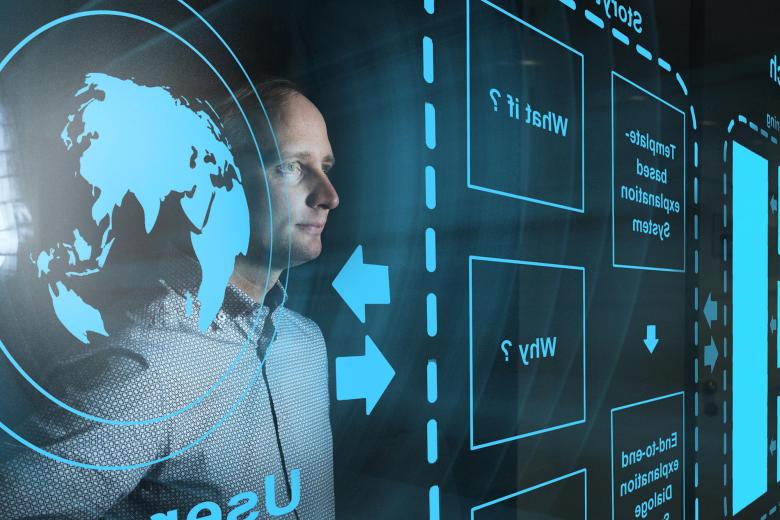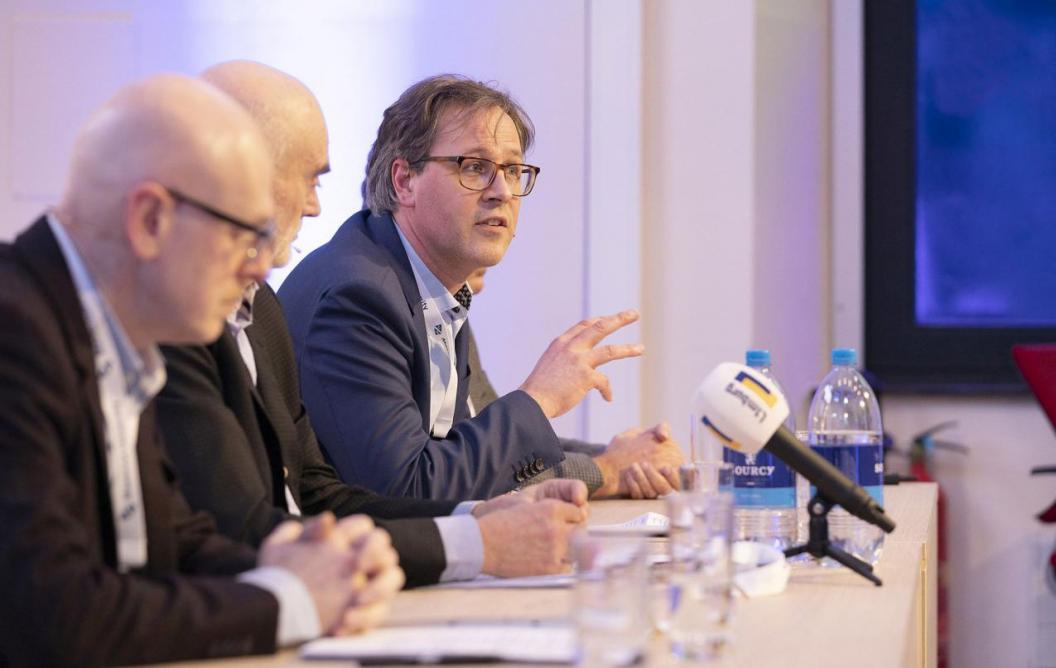On the road to a safe cyberworld
Every day, countless companies and organizations fall victim to cybercriminals. Their computer systems are attacked using destructive viruses, hacked via phishing and sometimes completely shut down as a result. According to estimates, cybercrime accounts for annual worldwide losses of EUR 500 billion. “And it’s only going to get worse,” says Michiel Borgers. “It’s war and we’re right in the middle of it.”
As Chief Information Officer at Maastricht University, Michiel Borgers is responsible for digitalization and all of the IT systems. There’s a reason he uses such strong terms when it comes to cybercrime. On December 23, 2019, he found himself in the middle of an outright nightmare: 267 servers containing all of the data and systems were locked down. It soon turned out that these were taken hostage by hackers.
“I knew right away something was terribly wrong,” he says now, looking back at the incident that occurred nearly a year and a half ago. “Everything went quiet. Students and teachers could no longer access the files they needed, the administrative system shut down, research data was inaccessible and giving classes was no longer possible. You know that IT is important, but it’s times like these that you realize that you are completely dependent on it. This doesn’t just apply to us, but to the entire world; hospitals, companies, logistics systems, transport, everything. We learned the hard way that we need to do a better job protecting these critical systems.”
Bitcoin
The perpetrators were most likely Ukrainians living in Russia, and it didn’t take long for them to make their demands known. They demanded a ransom of nearly two hundred thousand Euros, paid in bitcoin, to release the servers. “Over my dead body, was my first thought. If we pay, it means we’re doing business with criminals and we’re talking about public funds. However, rebuilding everything myself would take about three months. The damage from that would far exceed two hundred thousand. So the Board of Governors decided to pay.”
Cards on the table
The initial reaction was to avoid widely publicizing the situation. “We quickly reversed course on this too. We decided to lay our cards on the table and warn other organizations, telling them how the criminals did it and where we failed. Painful? I don’t really think the shame is justified. Should someone be ashamed if their house gets broken into? You can prevent these crimes in the future by sharing information on them. And maybe even catch the perpetrators, although that’s hard to do when it comes to cybercrime. Leads about the hack seem to point to Russia, and criminals may find it easier to do as they please there. Cybercrime is part of a global digital war. Perhaps if we take a stand at the European level, we can achieve something.”
Also read
-
Empowering Smallholder Farmers in the Data Economy: Unlocking Opportunities and Overcoming Obstacles
Frederik Claasen, the head of policy at our partner organisation Solidaridad Network on the opportunities and obstacles facing smallholder farmers in their data ecosystems.

-
Machines that can improvise
Computers are already capable of making independent decisions in familiar situations. But can they also apply knowledge to new facts? Mark Winands, the new professor of Machine Reasoning at the Department of Advanced Computing Sciences, develops computer programs that behave as rational agents.

-
A second chance for plastic
If we were to replace plastic with paper or glass, would the environment benefit? Surprisingly, no, says professor of Circular Plastics Kim Ragaert. She is calling for an alternative approach aimed at increasing awareness of and knowledge about recycling.

